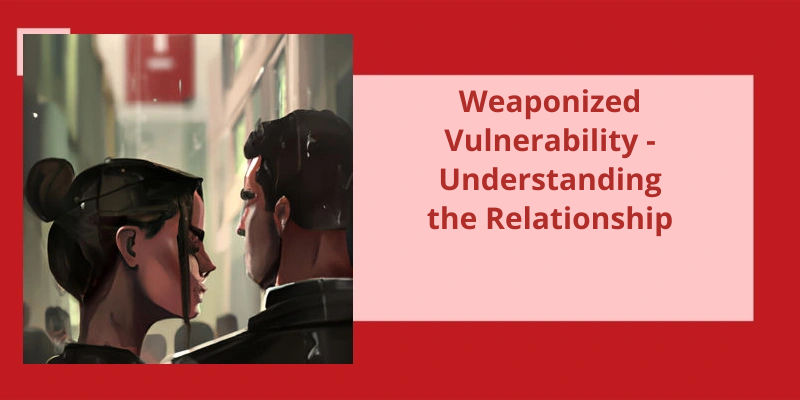Are you at a crossroads in life, feeling unsure about what you want? It's a common experience to find oneself in a state of uncertainty, lacking clarity and direction. Whether you're a recent graduate trying to choose a career path, an individual seeking a fulfilling relationship, or simply someone longing to discover their passion, this in-depth guide is here to help. Aptly titled "A Word for Someone Who Doesn't Know What They Want," this comprehensive guide aims to provide insights, strategies, and practical advice to navigate the complexities of self-discovery. By exploring various aspects of personal growth, exploring one's values, aligning with passions and interests, and learning to set goals and make decisive choices, this guide serves as a valuable resource for those seeking clarity and fulfillment. So, if you're ready to embark on a transformative journey of self-discovery, this guide is your compass, ready to navigate you towards a future filled with purpose and meaning.
What Do You Call a Person Who Doesn’t Know Anything?
Illiterate refers specifically to a lack of reading and writing skills, often due to a lack of formal education. It implies a fundamental inability to understand written language. Unlettered is a slightly older term with a similar meaning, denoting a lack of basic literacy skills.
Uneducated, on the other hand, encompasses a broader range of knowledge and skills beyond reading and writing. It suggests a lack of formal or structured learning, often due to limited access to education or personal circumstances. An uneducated person may lack knowledge in various subjects, but it doesn’t necessarily mean they’re entirely ignorant.
While these terms describe individuals who lack knowledge or training, it’s important to approach them with sensitivity. It’s crucial to remember that everyone has a unique life journey, and circumstances beyond their control may have limited their educational opportunities. Instead of labelling someone, it’s more productive to understand and support their desire to learn and grow.
Moreover, it’s essential to distinguish between a lack of knowledge and a lack of curiosity or interest. Some individuals may simply not have had exposure to certain information or experiences, but that doesn’t necessarily mean they don’t possess the capacity to learn or have specific interests. Therefore, it’s imperative to approach such individuals with an open mind and guide them towards discovering their passions or areas of curiosity.
Ultimately, the term to address a person who doesn’t know what they want should focus on their uncertainty rather than their lack of knowledge or education. By using words that highlight their exploration and quest for self-discovery, we can foster a supportive and encouraging environment that empowers them to find their purpose.
It’s the intellectual capacity to grasp the meaning or significance of information, ideas, or concepts. Understanding involves the process of interpretation, assimilation, and integration of knowledge, allowing individuals to make sense of the world around them. This cognitive ability plays a crucial role in various aspects of our lives, enabling effective communication, problem-solving, decision-making, and learning. Exploring the nature of understanding and it’s implications can shed light on how our minds navigate the complexities of the human experience.
What Do You Call the Ability to Understand?
It’s the capacity to grasp the meaning, significance, or essence of a particular concept, idea, or situation. When we say someone has a deep understanding, we mean that they’ve the ability to go beyond surface-level knowledge and truly comprehend the intricacies and complexities of a subject. This involves not only acquiring factual information but also being able to analyze, interpret, and synthesize it in a meaningful way.
Furthermore, understanding isn’t limited to intellectual or cognitive processes. It also entails empathy and emotional intelligence, as it requires us to connect with others on a deeper level and comprehend their experiences, feelings, and perspectives. This type of understanding is crucial for building relationships, resolving conflicts, and fostering compassion and tolerance.
The term “understanding” can also be used to refer to a general sense of awareness or insight. It signifies having a broader perspective and being open-minded, willing to consider different viewpoints and appreciate diverse cultures, beliefs, and values. This kind of understanding enables us to see the bigger picture, make informed decisions, and navigate the complexities of life with wisdom and discernment.
It goes beyond mere knowledge and requires active engagement, critical thinking, and introspection. To cultivate a deeper understanding, one must be curious, reflective, and willing to ask questions, challenge assumptions, and seek new perspectives. It’s an ongoing process that requires continuous learning, self-reflection, and a genuine curiosity about the world and the people around us. Ultimately, understanding is a precious skill that allows us to make sense of the world and our place in it, leading to personal growth, meaningful connections, and a more inclusive and compassionate society.
Many people struggle with comprehending complex ideas, leading to a sense of confusion or bewilderment. In such cases, finding alternative words or synonyms for “lack of understanding” can provide a clearer perspective. Synonyms like “difficult to understand,” “perplexing,” “enigmatic,” and “mystifying” can all convey the same idea of encountering challenges in grasping certain concepts. Let’s explore these synonyms and more to expand our vocabulary and enhance our ability to express the nuances of confusion.
What Is Another Word for Lack of Understanding?
When it comes to describing a lack of understanding, there are several synonyms that can be used. One of these is “bewildering,” which implies a sense of confusion and disorientation. Another synonym is “confusing,” which suggests a lack of clarity and comprehension. “Enigmatic” is a word that conveys the idea of something being mysterious and difficult to understand.
One of these is “incomprehensible,” which means something is impossible to comprehend or understand. Another synonym is “mystifying,” which implies a sense of perplexity and confusion. Finally, “perplexing” is a word that can be used to describe something that’s puzzling and difficult to understand.
The Importance of Effective Communication in Reducing Lack of Understanding
Effective communication plays a crucial role in reducing the lack of understanding between individuals. When people are unable to clearly express their thoughts, feelings, or needs, misunderstandings can arise, leading to confusion and frustration.
By effectively communicating, individuals can articulate their thoughts, listen actively, and ask clarifying questions. This facilitates a better exchange of information and enables both parties to fully understand each other’s perspectives and intentions.
Clear and concise communication helps to minimize assumptions, misconceptions, and misinterpretations. It allows individuals to address any potential confusion or uncertainty promptly, making it easier to find common ground and resolve conflicts.
Moreover, effective communication fosters empathy and understanding. When people communicate openly and honestly, they can gain insights into each other’s experiences, beliefs, and motivations. This promotes empathy and helps bridge gaps in comprehension, fostering a sense of connection and collaboration.
In conclusion, effective communication is essential in reducing the lack of understanding between individuals. By communicating effectively, people can enhance their relationships, minimize conflicts, and foster a greater sense of understanding and empathy.
Source: 15 Synonyms & Antonyms for DIFFICULT TO UNDERSTAND
Conclusion
In conclusion, exploring the concept of a word for someone who doesn't know what they want has allowed us to delve into the complexities of human desires, uncertainties, and decision-making processes. Throughout this in-depth guide, we’ve examined the various factors that contribute to this state of not knowing, including fear, societal expectations, and personal growth. By understanding the underlying reasons behind this confusion, we can cultivate self-awareness and empathy towards ourselves and others who may be grappling with similar feelings. Moreover, we’ve explored strategies and tools that can aid in navigating this journey of self-discovery, such as introspection, experimentation, seeking guidance, and embracing ambiguity. Ultimately, it’s crucial to recognize that not knowing what we want is a natural and valid part of the human experience, and it shouldn’t be seen as a deficiency or limitation. Instead, it can serve as an opportunity for growth, self-reflection, and the exploration of new possibilities. By embracing the process of self-discovery and being gentle with ourselves, we can gradually uncover our desires, passions, and goals, and find a sense of fulfillment and purpose in our lives.






